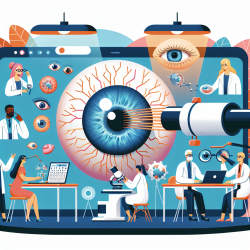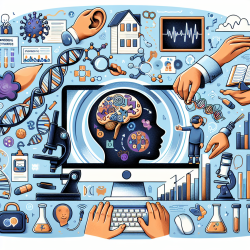As a Special Education Director, you wear many hats, from ensuring legal compliance to managing therapist staffing shortages. The demands are relentless, and the feeling of burnout is a constant companion. However, in the ever-evolving landscape of special education, innovation is key to overcoming these challenges. One such innovation is the integration of online therapy services, which has shown promising results in alleviating the pressures faced by special education professionals.
Online therapy, also known as telehealth, has emerged as a game-changer in the field of special education. It offers a flexible and efficient way to deliver essential services to students, especially in districts grappling with therapist shortages. Here’s how online therapy can help you navigate the complexities of your role and inspire a renewed sense of purpose.
Addressing Therapist Staffing Shortages
One of the most pressing issues in special education today is the shortage of qualified therapists. This shortage often leads to increased workloads for existing staff, contributing to burnout. Online therapy provides a viable solution by connecting students with certified therapists from across the country. This not only ensures that students receive the support they need but also alleviates the burden on local staff.
- Access to a broader pool of qualified therapists
- Flexible scheduling options
- Reduced wait times for students
Enhancing Service Delivery
Telehealth allows for a more personalized and consistent approach to therapy. Through virtual sessions, therapists can tailor their methods to meet the unique needs of each student. Additionally, the use of digital tools and resources can enhance the overall effectiveness of therapy sessions.
- Customized therapy plans
- Interactive and engaging digital tools
- Consistent and reliable service delivery
Fostering Collaboration and Communication
Effective communication and collaboration are crucial in special education. Online therapy platforms often come with built-in features that facilitate seamless interaction between therapists, educators, and parents. This ensures that everyone involved in the student’s education is on the same page, leading to better outcomes.
- Integrated communication tools
- Real-time updates and progress reports
- Enhanced parent and educator involvement
Improving Work-Life Balance
Burnout is a significant issue among special education professionals, and finding ways to improve work-life balance is essential. Online therapy offers the flexibility to schedule sessions at convenient times, reducing the need for travel and allowing for a more manageable workload. This flexibility can lead to a more balanced and fulfilling professional life.
- Flexible scheduling
- Reduced travel time
- Improved job satisfaction
In conclusion, the integration of online therapy services in special education is not just an innovative solution; it is a necessary evolution. By addressing therapist shortages, enhancing service delivery, fostering collaboration, and improving work-life balance, online therapy can help alleviate burnout and inspire a renewed sense of purpose among special education professionals. Embracing this innovation can lead to better outcomes for both students and educators, making the challenging yet rewarding field of special education a more sustainable and fulfilling endeavor.
At TinyEYE, we are committed to providing top-notch online therapy services to schools, helping you navigate the complexities of your role with ease and efficiency. Together, we can revolutionize special education and create a brighter future for our students.










